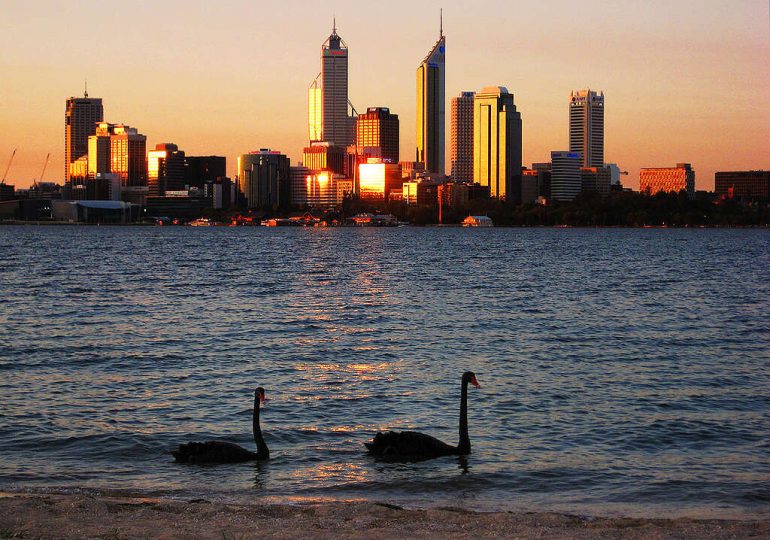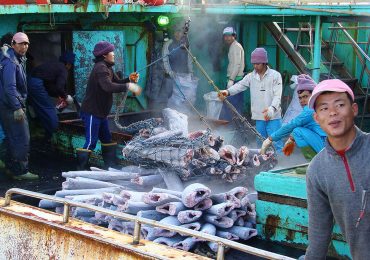Swan River at Sunset. Image: Fernando de Sousa on Flickr, CC BY-SA 2.0
Nature is not only mother to us all, but our shared witness. Because truly, we are never alone when in the hallowed company of the elements, and life of the earth.
Sometimes, it is the immensity of things which reaches inside you—oceans, sky and sun, or the curve of the terrestrial distance—while at other moments it is the intensity of intimate association at a smaller scale, like a single tree you know as a friend, or a specific combination of scent, stone, water and light, felt uniquely in situ.
In both great and small manifestations, the natural world solemnly and playfully attends our lives as we go about our business on this, our singular living planet.
I felt this sense of nature incarnated as an attentive companion acutely this week, when walking between meetings along the Swan River.
If you grow up in Perth, even in one of the outer suburbs as I did, the Swan River, or Derbal Yerrigan in the language of the Whadjuk Noongar People, is always there as a presence.
The bits I know best feel like a kind of emotional map of the journey through the years, as evocative as any diary. This patch, where I threw a cricket ball around with my best mate in the early evening, laughing at the joy of being alive as the spinning pill arced against the twilight; that slight bend in the path, imprinted with the ambivalent tension of being about to sit university exams; there, the site years ago, of running around at the feet of my Dad, as young as I can remember him; here, a spot that summons the sense of exhausting exhilaration when fecklessly going for a run in the mid-day western heat; and above all that cherished place, I will always associate with love, newly declared and found to be returned.
And other things too, inchoate layers of pleating fragments; thoughts and feelings without number, that will always be evoked in my mind by the sweep of the Swan
What is most evocative or sacred to us is always bound to feeling, rather than the product of any rational calculus. It is also true, though, that geography as memory is complicated by change—something that is a constant in nature; wildly accelerated by human intervention; and now spiralling into the violently unpredictable, because of global heating.
Derbal Yerrigan has no doubt always been changing, in the countless days that the river has flowed since time immemorial; but never altered or transformed in the way has occured since colonisation and industrialisation; nor in the way that is happening now.
I troubled about this while making my way along the Swan this week, and watched as an Australasian darter (Anhinga novaehollandiae) perched on the river wall and spread its wings interstitially, as if gesturing to signify the bonds between the land, water and sky. At that moment, I abruptly remembered that my gaze was not solitary, because far and high in the air behind me were the lidless eyes of the city skyscrapers, including the dark towers of the fossil fuel giants, Woodside and Chevron, staring down with abject contempt for the future.
I suspect like many of us, I feel a perpetual mental struggle between the dissonance of the everyday, which, even despite spring temperatures soaring 15 degrees Celsius above average, still has a normalcy to it that is discordant with what we know about the realities of global warming, and the forecasts of what is to come. The Swan, like all rivers, now faces its most violent test yet of rising temperatures and extreme unnatural events.
The attendance of nature to our lives is not passive. If we think only of ‘the environment’ just as subject, we miss the point of both our own embeddedness in this world, and of the agency of life itself. Every species on earth has an innate energy to flourish and reproduce. The Swan River will keep on rolling, with all of the intense hydrological power at its command. Given half a chance nature will resurge and rebound in wood and feather, tooth and maw.
Our conscious task, I think to myself, but mentally addressing both the bird and the river, is to purposefully draw on the power of this meaning; an internal strength derived from the preciousness of our memories imbricated in place.
I pause and offer a silent pledge to the River: you’ve always been there for us. And in the activism, ingenuity, campaigning and commitment of millions of determined people across Australia and the world, all of whom are dedicated to stopping the destruction of nature and the climate and of securing a return to flourishing, so we will be there for you.
Q & A
Greenpeace campaigns are always solution-led, and one of the questions I have been asked a lot over the years is about our systemic solution for Western Australia to reduce emissions at an emergency speed and scale, and get off gas.
This week, it was terrific to be in Perth, joining colleagues to help launch a comprehensive decarbonisation plan for the state, Power Shift: WA’s Electrified Future written in collaboration with Springmount Advisory.
This report comprehensively shows how WA’s economy can be aligned with the global goal of limiting warming to 1.5°C, and breaks down the transition pathway WA can take across energy, industry, transport and agriculture to achieve this. It highlights the challenges and opportunities across each sector, and provides policy level solutions to achieve these ambitions using only already-existing technologies. You can check out the report here.
Leave a comment




